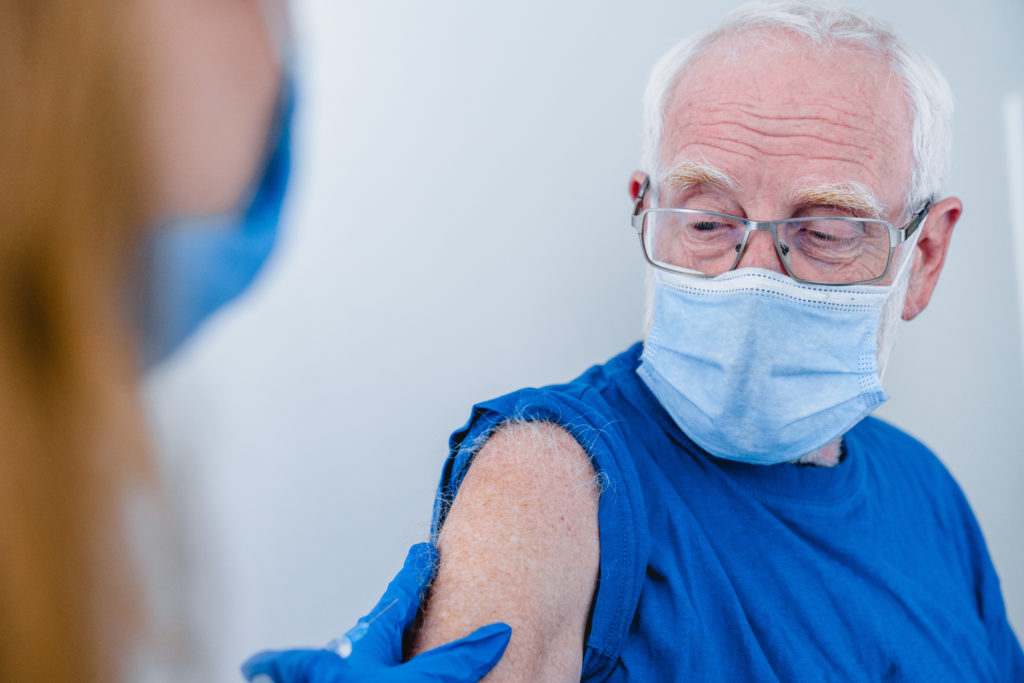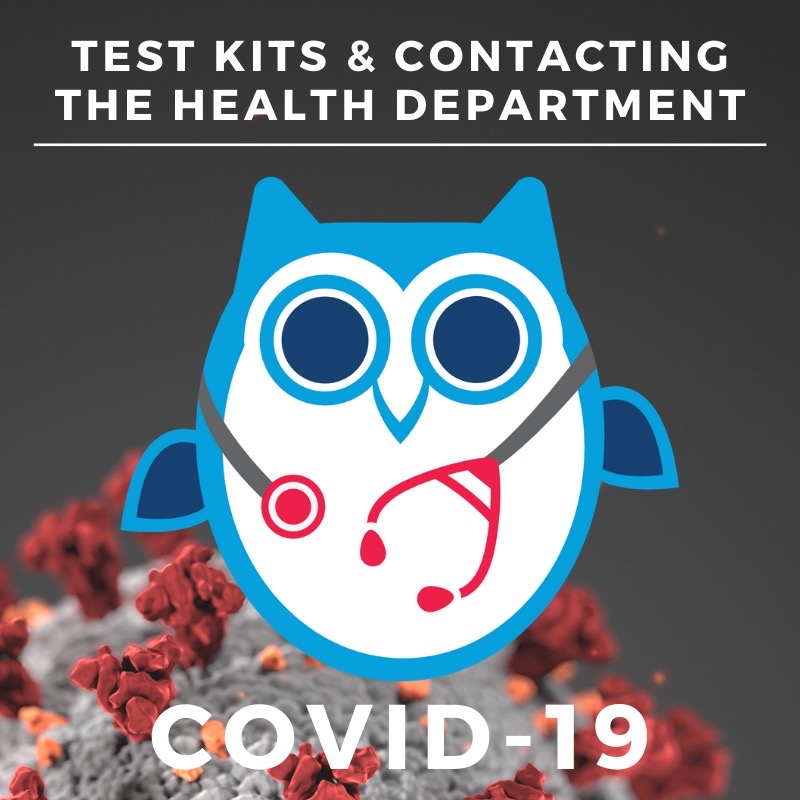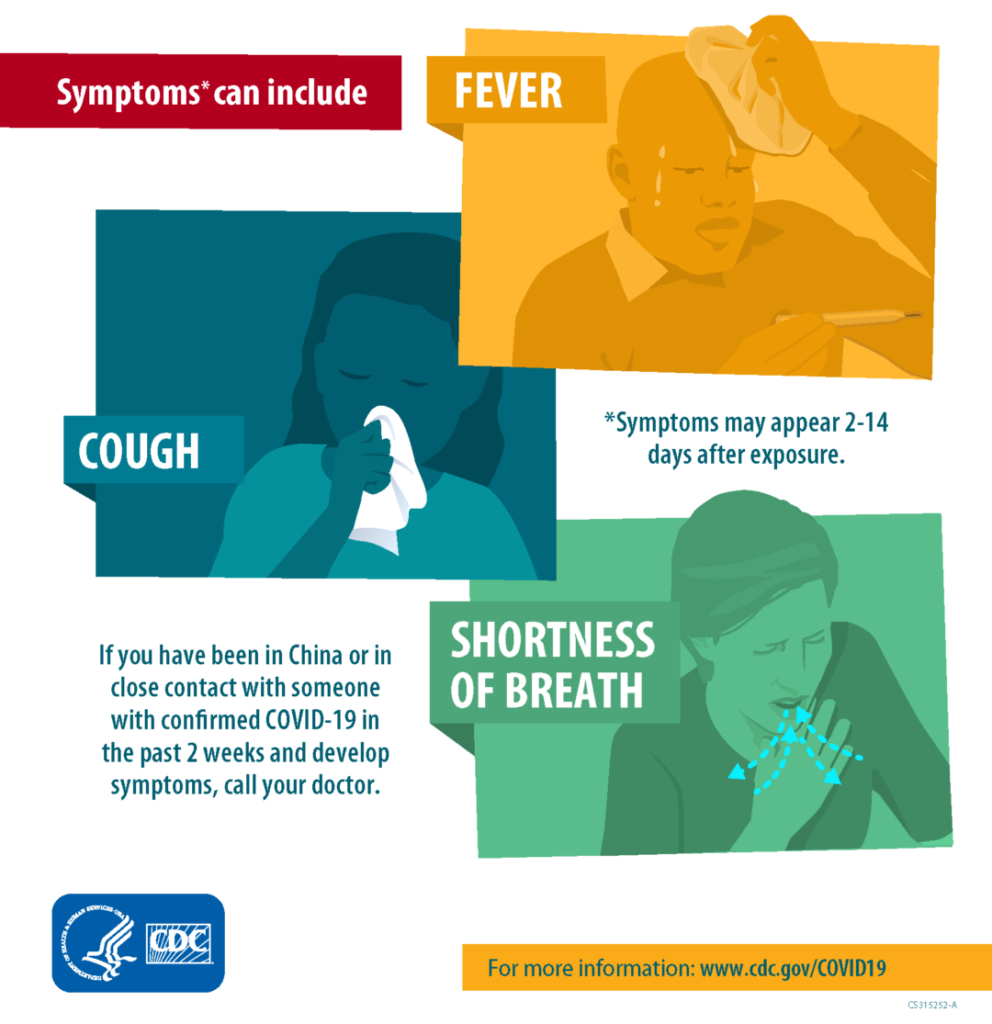WE NOW OFFER COVID TESTING AT OUR LOCATIONS.
To be tested for COVID-19, please call our offices to let them know you want a test. Once you arrive, please stay in your car and call the clinic to let them know that you are ready for your test. You will then receive instructions on what to do afterward.
Protect yourself and the people you love. Get vaccinated.

We are at a turning point in the COVID-19 pandemic and have a powerful tool at our disposal – the coronavirus vaccine. The Pfizer-BioNTech and Moderna vaccines have received Emergency Use Authorization from the FDA and are proven to be safe and effective in preventing symptomatic COVID-19 when administered in two doses.
The current supply of COVID-19 vaccines in the United States is limited, and Florida has designated that healthcare workers and first responders will receive the first available doses followed by adults ages 65 and older and adults designated as high-risk by healthcare providers. We do not currently have the vaccine available, but we anticipate getting doses soon. We are thoughtfully planning and working closely with federal and state health authorities to ensure we are ready for distribution as soon as more authorized vaccines are available.
While this is a promising step toward curbing the COVID-19 pandemic, we must stay vigilant in observing safety protocols such as continuing to wear a mask, washing your hands frequently with soap and water or using hand sanitizer and practicing social distancing.
We will share more details on the COVID-19 vaccine distribution for our community as soon as more information is available. The Florida State Department of Health has established a vaccine information webpage and the CDC continues to add and update its vaccine information as well here.
Trinity Medical Group is committed to getting you the information you need to learn more about the vaccine and the importance of getting vaccinated.
FAQ
How can vaccines help control Covid-19 infections?
COVID-19 vaccinations will help protect ourselves and others to both prevent and reduce the severity of disease. Vaccines provide immunity without the serious risks associated with getting infected naturally. Wearing masks and social distancing help reduce the chance of being exposed to the virus or spreading it to others but these measures are not enough. The COVID-19 vaccines are designed to work with our immune systems so the body will be ready to fight the virus if we are exposed to the virus.
If a large enough proportion of a community becomes immune to COVID-19 through vaccination, it can reduce the spread of the disease to others. Stopping a pandemic requires the use of all tools available.
How many doses of the COVID-19 vaccine will I need?
Initial supply of COVID-19 vaccines will require two doses – 21 days apart for Pfizer-BioNTech and 28 days apart for Moderna. It is imperative to complete the full course of treatment, which includes a second dose of the vaccine, to achieve maximum protection.
Is the vaccine safe?
Trinity Medical Group takes the health and safety of our patients and team members seriously, and we are committed to ensuring the safe distribution of the COVID-19 vaccine in a timely manner. The Pfizer-BioNTech and Moderna vaccines have been proven to be over 90 percent effective in preventing symptomatic COVID-19 when administered in two doses. For comparison, annual flu vaccination is between 40-60 percent effective in preventing influenza. As with all pharmaceuticals, a patient’s response to a vaccine is unique to their individual body and medical history. We encourage all patients to discuss the vaccine with their physician before administration.
Why should I receive a vaccine?
Ending the pandemic is dependent on enough of the population receiving a vaccine. By choosing to get vaccinated, you can protect yourself and the people you love while taking an important step toward getting everyone back to their normal routines.
We encourage all our team members, as well as all members of our community, to consider a vaccine. Since the start of the pandemic, caregivers have been at risk for contracting the coronavirus in their work caring for patients and the communities they serve. Numerous nurses, physicians and other clinicians around the country have contracted the virus, and some have died. The Pfizer-BioNTech and Moderna vaccines have been proven to be over 90 percent effective in preventing symptomatic COVID-19 when administered in two doses.
What are the side effects from the COVID-19 vaccine?
Most commonly reported side effects are injection site pain, fatigue, headache, muscle pain, chills, joint pain, fever. Most of these are mild and usually present for a day or two. Severe allergic reactions to vaccine have only been observed in a small number of people who have typically had reactions to other vaccines or medications.
If I have already had COVID-19 and recovered, do I still need to get the COVID-19 vaccine?
People who have gotten sick with COVID-19 may still benefit from getting vaccinated. However, there is not enough information about this at this time to determine if or for how long after infection that someone is protected from getting COVID-19 again.
As the world continues to manage the effects of COVID-19 (known more commonly at the “coronavirus”), the US continues to update recommendations on how best to avoid the spread of the disease. We are paying attention to these recommendations and have implemented several policies to better comply with what the US government suggests.
Should you need to visit us, we ask that you check in online here to better help us see you in a timely manner with minimal contact with other sick patients in our waiting room. If you come to see us and are exhibiting symptoms of COVID-19/coronavirus such as coughing, fever, and shortness of breath, we will kindly ask you to wait in your vehicle until we are ready to see you. Our goal is to minimize the contact of our patients as much as possible to try and limit the possibility of exposure to illnesses.
Since we foresee an influx of patients at both of our locations, we will be not be accepting walk-ins at the Lakeland office past 9:00pm and will not be accepting walk-ins at the Winter Haven office past 10:00pm. This will allow us to give our full attention to our patients and allow us to better prepare to see patients the next day.
We appreciate your understanding and cooperation during this time. Remember to stay calm, wash you hands, and minimize your contact with other people.
COVID-19 – “Coronavirus”
 Earlier this year, the World Health Organization declared a public health emergency because of the co
Earlier this year, the World Health Organization declared a public health emergency because of the co
ncern surrounding the spread of the new coronavirus. They have identified several cases in the United States, but what does that mean for you? Should you change any part of your daily routine to stay safe from this new virus? We’ll break it down for you.
What is the coronavirus? Traditionally, the standard coronavirus is the cause for most of the colds and respiratory illnesses that people get every fall and winter – also known as the “common cold.” The strain that is causing so much concern is a new respiratory virus that originated in Wuhan, China, and has slowly started spreading into other countries—including the United States.
What are the symptoms? The coronavirus has similar symptoms to a cold or the flu. Symptoms can appear anywhere from two to 14 days after exposure. This means that people may not realize they have the virus even though they could be contagious. Some people may have no symptoms at all. Symptoms to watch for:
- Fever
- Cough
- Shortness of breath or trouble breathing
If you have respiratory symptoms but no fever, still see a doctor to help determine whether you have this strain of the virus. Like any virus, it can be most difficult for the very young, elderly, or people with compromised immune systems.

How can you protect yourself? To limit the chances of coming down with any illness, including the coronavirus, follow the same precautions that you would for all cold and flu outbreaks:
- Wash your hands with soap and water frequently throughout the day for a minimum of 20 seconds, especially every time you use the restroom and before you eat.
- Use alcohol-based hand sanitizers (Hand sanitizer should never be used as a substitute for hand washing, as it will not kill all germs.)
- Cough and sneeze into your elbow—NOT your hands.
- Avoid touching your face.
- Stay home if you have symptoms of the flu and especially if you have a fever.
- Stay away from people that are exhibiting cold and flu symptoms, like coughing, sneezing, and wheezing.
- Frequently clean and disinfect common surfaces that are touched throughout the day – doorknobs, countertops, cabinet handles, and phones, to name a few.
If you suspect that you have been in contact with someone that has the virus, notify your health care practitioner for guidelines on what you should do. For the latest news on the coronavirus, check the following up-to-date websites:
- Summary of outbreak and response from the CDC
- Information on symptoms, prevention, and treatment (CDC)
- US situation summary (CDC)
- International summary (World Health Organization)
___________________________
This article provides information on general health and health-related subjects. The information and other content provided by this article, or in any linked references, is not intended as a substitute for professional medical expertise and should not be used to replace the advice of your own healthcare provider.
If you or any other person under your care has a medical concern, consult with your health care provider or seek professional medical treatment. Do not disregard professional medical advice or delay in seeking treatment because of something read in this article or in any linked materials.
If you think you are experiencing a medical emergency, call your doctor or dial 911 for immediate emergency services.
Owl Now Urgent Care: Walk-in doctor office alternative to emergency room (ER) care.
